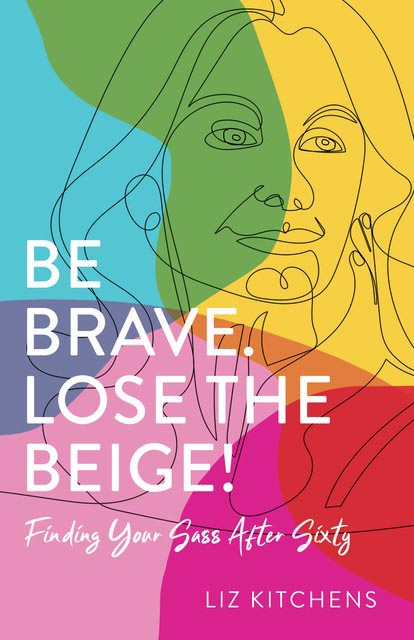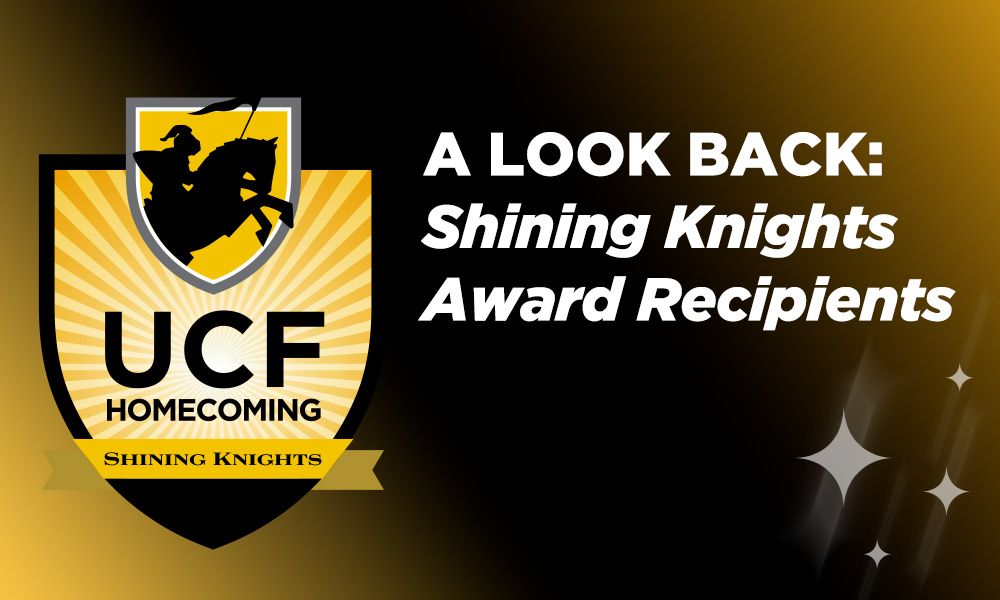Alumna Author Liz Kitchens ’82 Colors Outside the Lines in New Book
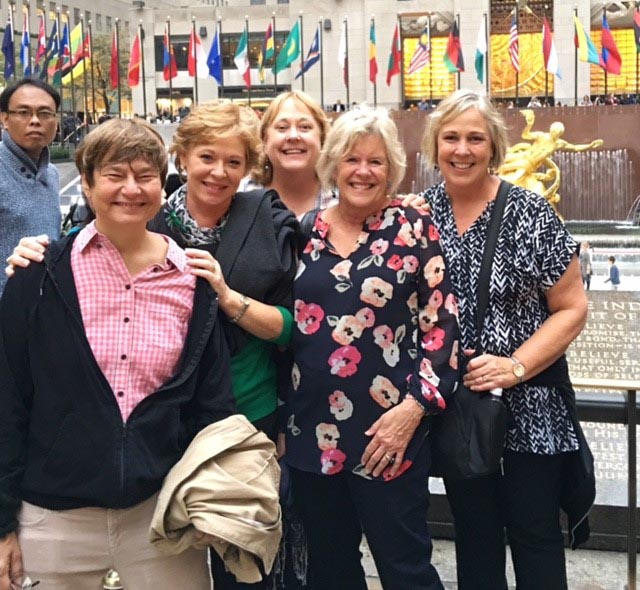 When Liz Kitchens, second from right, was in New York City a few years ago with her friends, they all joked that they had become invisible to the rest of the world as they aged. Learn what Kitchens recommend to avoid “blending” into the world.
When Liz Kitchens, second from right, was in New York City a few years ago with her friends, they all joked that they had become invisible to the rest of the world as they aged. Learn what Kitchens recommend to avoid “blending” into the world.
Now, as she prepares to release her book into the world on May 16, she looked back on her days at UCF
“It was very humbling,” Kitchen recalls. Kitchens, who had received an associate degree from Valencia College, had already been working as a paralegal for several years before she had gone back to school. Naturally, she thought she could handle a humanities paper.
“He might as well have just crumbled up my paper and tossed it in the trash,” Kitchens says of then-Chair of Humanities Paul Riley’s edits.
But Kitchens charged on, in true Knight fashion. At the time, Kitchens was also attending UCF with her brother, Patrick Lang ‘82, and her mother, Terrye Lang ‘83, a teacher, who graduated with her master’s degree in humanities at the age of 50. She also has nieces and a stepson who are alums.
Two years later, she was required to write an 800-word count paper as part of the graduation requirement to obtain her Bachelor of Arts degree. She received a 95 on that paper.
When Kitchens received her diploma from Dr. Trevor Colbourn, the sense of accomplishment was palpable. She had worked her way through school, had a small child at home, and one on the way – literally – and says she owes her success to UCF.
“For UCF to be so close to us was remarkable,” Kitchens says. “It’s difficult to think about what my life would be like without UCF. I remember sitting in class listening to some classical music, relishing that I had the opportunity to just be here.”
Kitchens also came back to UCF later in life; she audited several classes in ceramics. She was more than just a hobbyist, she had started a program called the Jeremiah Project, a nonprofit that provided art classes for underserved middle-school students through the Boys and Girls Clubs of Central Florida.
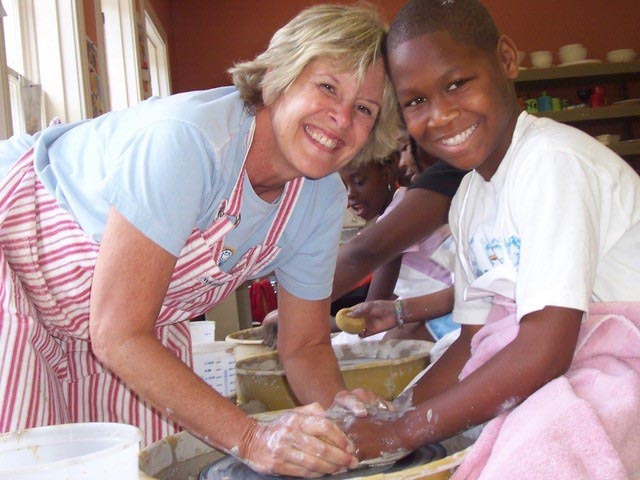
Liz Kitchens ran The Jeremiah Project for 18 years, a nonprofit dedicated to teaching children the art of sculpting.
“The original impetus was – I don’t know if I can say this – ‘teach kids to make pots instead of smoking pot,’” Kitchens chuckled. “But it was really fun, and the students enjoyed getting into the clay and being creative.”
The program ran for eighteen years, Kitchen says, until the pandemic closed it down because of social distancing restrictions.
When she closed the program last year, she had already formed an idea for her book.
“I started writing a blog in 2009 because I realized I had something to say,” Kitchens says. “Now, whether or not people wanted to listen to me, that was another story.”
Kitchens is making a joke. She has found that issues like “empty nest syndrome,” “Boomerang” kids, and financial woes can seem more palatable when accompanied by a dash of self-deprecating humor.
“On my blog, I was just writing about things that were going on in my life, and people started relating to them,” Kitchen recalls. “And my posts kind of morphed into stories and then into a book.”
Kitchens, who with her husband, James, own a market research firm, could gauge by the responses to her blog that she had hit on difficult and seldom discussed topics. Much of their work has focused on the political issues of the day, but their research also touches on individual life choices.
“The issues that we face as women, as baby-boomer women, and as caregivers for as many as three generations are multiple, and often difficult to deal with,” Kitchens says.
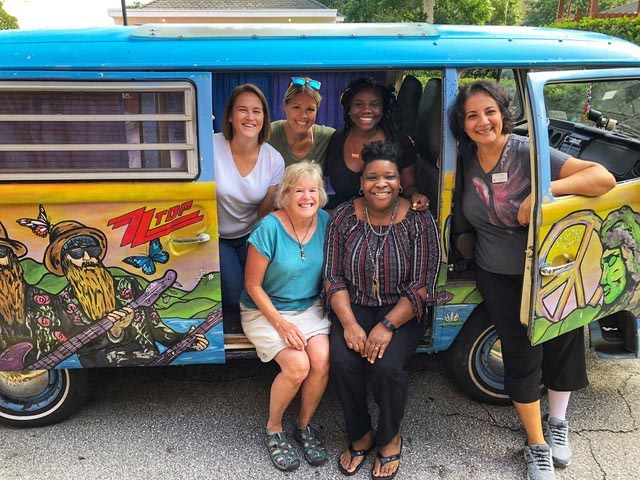
Nobody invisible here! Liz Kitchens and her friends on one of their many adventures.
By the way, Kitchens says, the meme of “OK, Boomer,” was not amusing to her.
“I mean, all we’ve done is take care of others all our lives,” Kitchens says. It was painful to hear herself and others like her reduced and dismissed.
In her book, (subtitled Finding Your Sass After Sixty) Kitchens talks about a time when she went to New York City with a group of her friends. Vibrant, talkative and fashionable women all, but they noticed that they were becoming invisible.
“One of my friends said we could smoke a bong on Fifth Avenue in Times Square, and the police would think that someone was just blowing smoke at us,” Kitchens says. “People would just walk right into us, literally, like we didn’t exist.”
Kitchens is a big advocate of finding one’s “sass” after the age of 60.
“It’s really about being brave and standing up and saying NO,” Kitchens says. “I’m not going to give you all my money. I’m not going to give you all my time. What struck me as funny when I was writing the book was thinking about the lengths we will go to meet someone else’s needs, without considering our own.”
And another thing, Kitchens says, is it’s OK to break a few rules every once in a while.
“Society says no a lot,” Kitchens says. “And when we can say yes, it is empowering and puts us more in control of own lives.”
She’s not talking about anything crazy, she says. Just little baby steps. Wear the purple. Use the glitter.
“I did have a concern that people wouldn’t take my book seriously because it is playful and colorful,” Kitchen says. “But my message is very serious.”
Once a month, Kitchen takes her message to the Center for Health and Wellbeing in Winter Park where she teaches an “exercise your creativity” class.
“I am obsessed with color,” Kitchens says, but her message in the book isn’t just about adding crazy purples to one’s wardrobe.
“When you recognize that creativity is a very important part of wellness, you may also recognize that perhaps you haven’t ‘exercised’ that part of your brain since you were 10.”
And creativity is so much more than popsicle art or finger painting, she says.
“It’s about breaking rules, about doing little tiny things that will put you back in control of the aging process, because that’s our biggest fear, that we are losing control as we age.”
One of the recent ways that Kitchens broke the rules was when her husband had a cancer scare and was staying overnight in the hospital. Kitchens decided to “kidnap” him for a few hours, just take him for a drive around town for a change of scenery. It lifted both their spirits, but some of her friends were horrified.
“They were concerned, of course, because they were worried for his health,” Kitchens says. “But it was just a short drive, and nothing happened. And the fact that we broke a little rule really energized both of us and helped ease the tension of the upcoming procedure.”
The process of writing “Losing the Beige” was like sculpting clay, Kitchens says. She started with an idea – drawing from her popular blog – and as she added and subtracted and refined, a somewhat finished book emerged.
“UCF was the first one to teach me how to ‘sculpt’ with words,” Kitchen says. “The editing process was a little grueling, but I learned that revising as we went along was necessary for a great finished product. And isn’t that true for each of us? I really feel like UCF launched my writing career, and I’m utterly and completely grateful to Paul Riley for telling me I didn’t know how to do it.”
